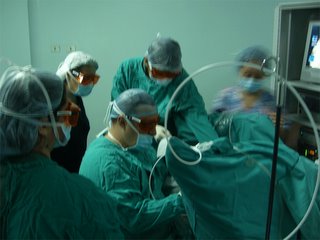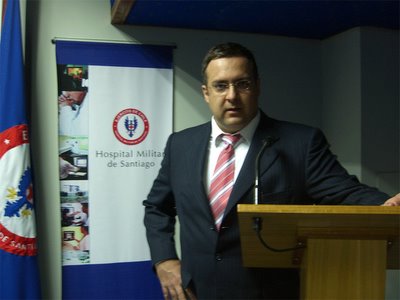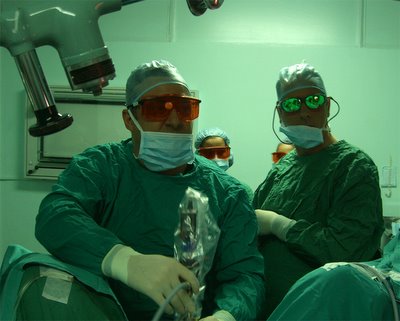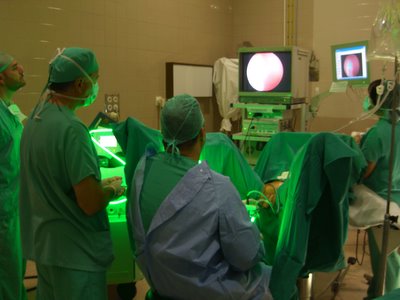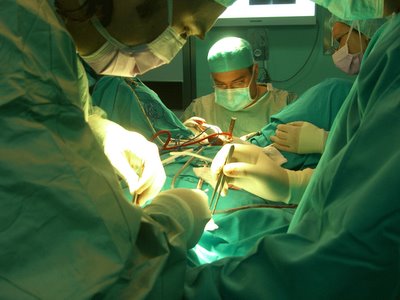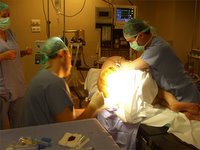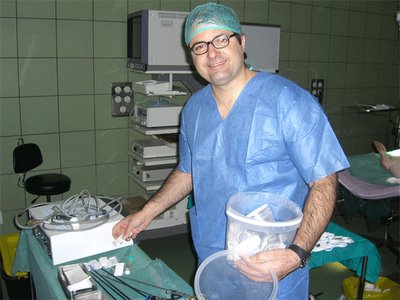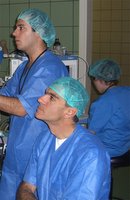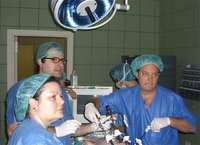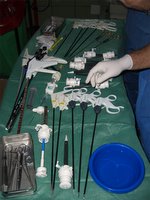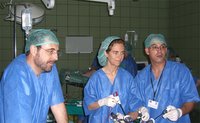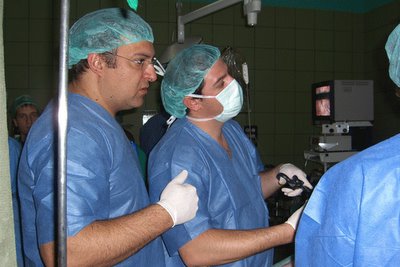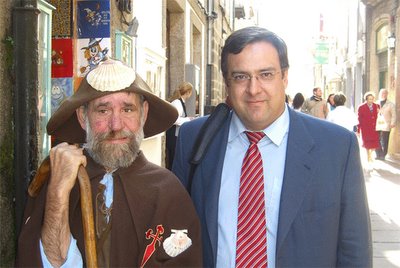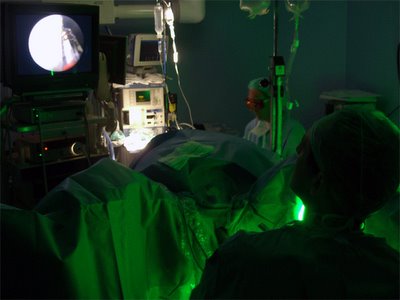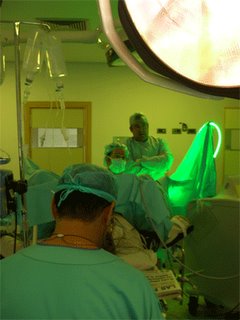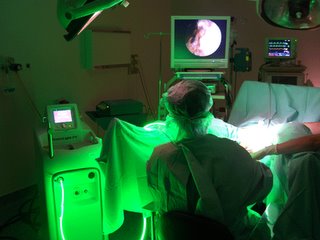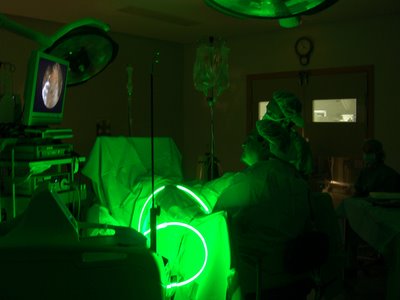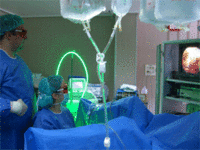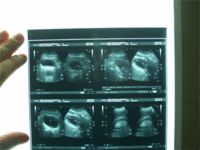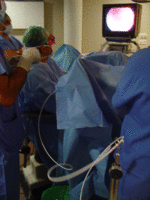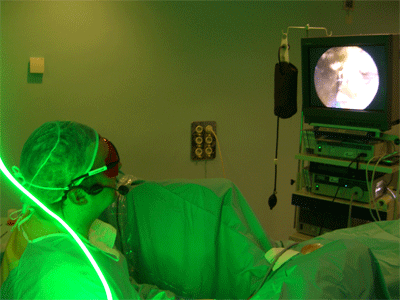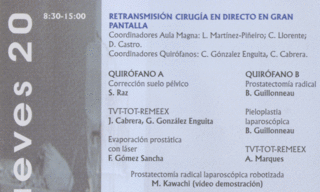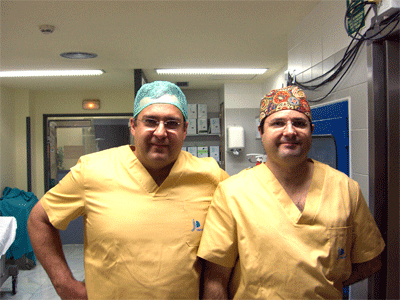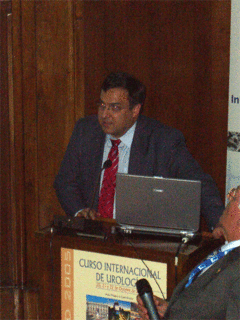
Today we celebrated the round table on new surgical treatment options for benign prostatic hyperplasia (BPH). The moderator was Dr. Vicente and other participants were Marceliano García, Prof. Marberger (Viena, Austria) and Valdivia Uría.
I had five minutes to present the data published up to now on Photoselective Vaporisation of the prostate for BPH and I have included three photographs that have impacted the audience. One photograph depicting the patient I operated yesterday, smiling (I have erased his face to protect his identity), catheter free, ambulant, as if he wasn't operated at all.
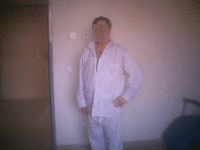
I visited him the morning after surgery, and performed a control ultrasound of his prostate and a flow rate measurement. The flow was not very impressive, as not all patients manage to have a very big flow the first day. He had to carry a urinary catheter for months, and in less than 24 hours he got rid of it. The flow will improve
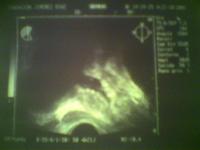
day by day. I also took a photograph of the colour of his urine, that I collected in a glass recipient. I had to take these photos with my mobile phone, and then I transferred them to my laptop using the infrared link. So I was able to integrate them into my presentation.
The public in the room was very

suprised to see this quick result. The panelists commented how impresive was the ultrasound image showing a complete removal of hyperplasic tissue. They were also impressed by the smiling patient and the clear urine.
In the photo below I am with Prof. Marberger and Dr. Valdivia, during the discussion we had after my presentation. Prof. Marberger and I met at the national congress of the Taiwanese Urological Society, celebrated in August 2004, where I presented my experience with the initial 40 patients of my series.
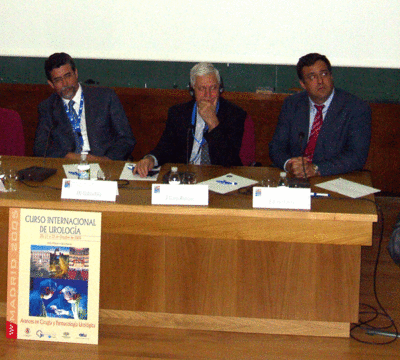
Tomorrow, two doctors from the Institute of Advanced Urological Surgery of Madrid will present their work. Dr. Castillón, director of the laparoscopy unit, as well as Dr. Moncada, director of the Andrology unit, so I will have to wake up early to watch their presentations.
 Today I have received a copy of the fourth volume of the Audiovisual Course on New Technologies in Urology. A training programme sponsored by Pfizer and supported by the Spanish Urological Association. I already contributed for volume I with a video and a chapter on PVP - Photoselective Vaporization of the Prostate. In this volume IV I have published an article and a video on Cryosurgical ablation of prostate cancer. This is an interesting video, it includes images of the 4D transrectal ultrasound monitorization of the procedure, a new approach we performed at the Instituto de Cirugía Urológica Avanzada (ICUA), in Madrid.
Today I have received a copy of the fourth volume of the Audiovisual Course on New Technologies in Urology. A training programme sponsored by Pfizer and supported by the Spanish Urological Association. I already contributed for volume I with a video and a chapter on PVP - Photoselective Vaporization of the Prostate. In this volume IV I have published an article and a video on Cryosurgical ablation of prostate cancer. This is an interesting video, it includes images of the 4D transrectal ultrasound monitorization of the procedure, a new approach we performed at the Instituto de Cirugía Urológica Avanzada (ICUA), in Madrid.








